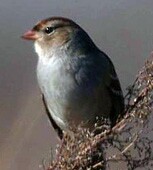
THURSDAY, March 1 (HealthDay News) — Where a bird lives appears to affect how it sings, researchers have found, with city dwellers tweeting at a higher pitch than those residing in wooded areas.
With the help of controlled sound recordings, researchers from the University of Copenhagen in Denmark and Aberystwyth University in Wales found that birds change the way they sing due to city buildings — not just the constant noise from traffic and people — as was previously believed.
“Urban architecture is a crucial determinant of how urban birds sing,” study co-author Torben Dabelsteen, a professor in the University of Copenhagen’s department of biology, said in a university news release.
“We have shown that the higher frequencies in urban birds’ songs are also transmitted across cities when there isn’t any noise from traffic,” Dabelsteen said. “This shows that the physical structure of cities must play a considerable role in the heightened frequencies.”
The study, published online in PLoS One, revealed that various types of buildings, open spaces and alleys distort noise in different ways. The scientists suggested that birds living in these urban environments must change how they sing to reduce echoes and communicate with each other effectively.
“City -dwellers can look forward to the lively song of birds in the coming spring, and even though a side effect of the urban birds’ more powerful song is that they sing at a higher pitch, this is something that we are not typically able to hear,” said Dabelsteen.
More information
The Smithsonian Institution has more about the effects of urban development on bird songs.

